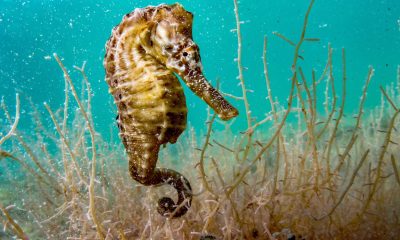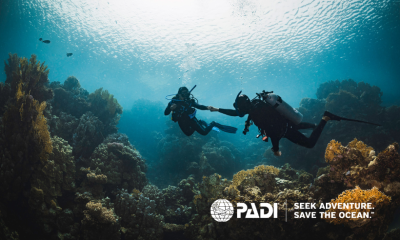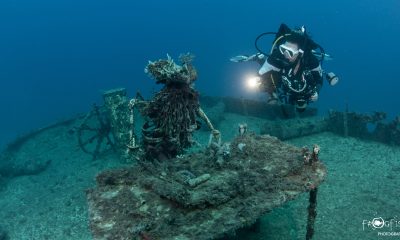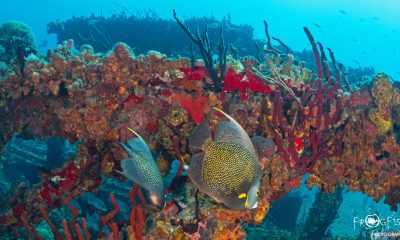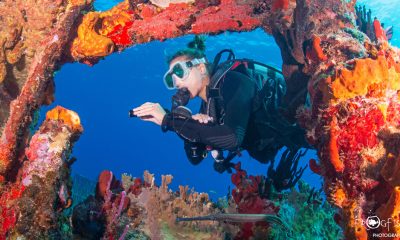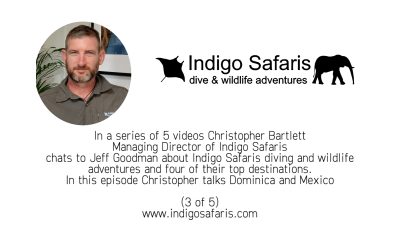News
Diving with…Mike Harterink, Scubaqua Dive Center, St. Eustatius, Dutch Caribbean
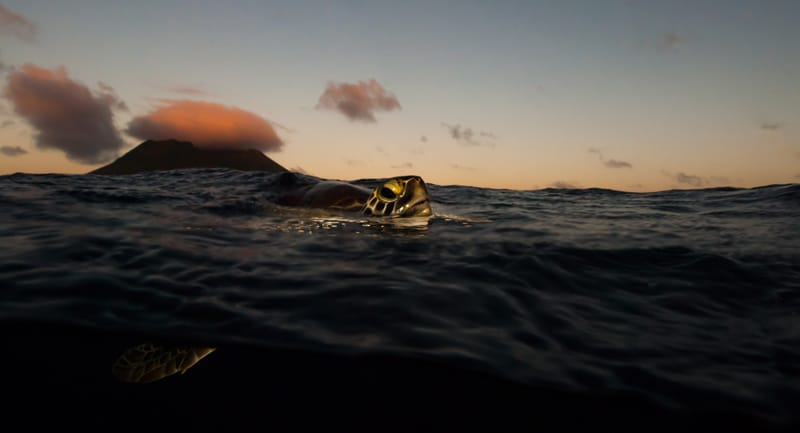
In this ongoing series, we speak to the people who run dive centres, resorts and liveaboards from around the world about their businesses and the diving they have to offer…
Mike Harterink
What is the name of your business?
What is your role within the business?
Co-owner
How long has the business operated for?
Since 1997
How long have you dived for, and what qualification are you?
25 years, PADI Course Director
What is your favorite type of diving?
I love to dive off the beaten track.
If you could tell people one thing about your business (or maybe more!) to make them want to visit you what would it be?
The reefs surrounding St. Eustatius are flourishing in a protected marine park. Underwater you will experience what much of the Caribbean must have looked like many years ago. Add some historical dive sites and more recently sunk wrecks to the mix and you’ve got yourself a divers paradise! And we dive how we want to dive ourselves on our vacations; small groups (6:1) and unlimited dive time.
What is your favorite dive in your location and why?
Blue bead hole is a dive site between the old harbor bay and the color full reefs, under the volcano, in the south of the island. Here you find a mix of coral heads, sandy patches, sea grass and if you are lucky: blue beads. Actually, according to the legend, the beads find you, not the other way around. Even without being found there is a fair chance you encounter some amazing critters. Pike, and sailfin blennies, juvenile angelfish and the blue beads guardians: flying gurnards.
What types of diving are available in your location?
Statia offers a huge variety in environments packed in a nutshell. Deep dives, coral gardens, historical dives, wreck, and muck dives are all in 10 to 15 minute reach.
What do you find most rewarding about your current role?
We have four owners here which allows me and my partners to dive with our guests on a daily basis.
What is your favorite underwater creature?
Hard to choose but one of my favorites are the turtles. We encounter both Green, and Hawksbill regularly.
As a center what is the biggest problem you face at the moment?
Although Statia wasn’t damaged too much by last year hurricanes Irma and Maria, we stil feel the negative aftermath due to cancellations.
Is your center involved in any environmental work?
We are! All of our staff keeps a special garbage bag in their BCD in case they find some (plastic) garbage. But we do more to preserve our environment:
We collect and store rainwater to use for our rinse buckets, our toilets and showers at the dive center. The amount of water we collect covers about 80% of our needs. We installed drinking water fountains. We provide free fresh water to customers at the dive center and to divers on our boats in an effort to reduce the use of plastic bottles. We also use cups and straws made from recycled cardboard instead of plastic. We have two separate garbage bins for recycling.
We continually try to educate our divers about responsible behavior (including good buoyancy control) to protect our fragile coral reefs (no anchoring allowed, one boat per dive site, etc.).
We offer low guest-to-guide ratio (max 6:1). This gives us more control over behavior which could damage the underwater environment. We also make sure that the divers respect the established marine park rules.
How do you see the SCUBA / Freediving / snorkeling industry overall? What changes would you make?
Owning (or working in) a Dive Center is a labor of love. It’s crazy that for instance a Open Water certification worldwide is priced for around 400 US$. For a lot of dive centers it’s hard to keep afloat.
What would you say to our visitors to promote the diving you have to offer?
The moment you arrive in St. Eustatius, locally known as ‘Statia’, you immediately get that typically Statia feeling. There are no big crowds at the airport. Actually you don’t find big crowds anywhere on Statia. St. Eustatius is untouched by the big development companies. You don’t find casinos, shopping malls or worldwide fast food restaurants. What you do find is a safe and friendly island where time stood still. You can enjoy cosy restaurants and bars in Oranjestad, St. Eustatius’ one and only town. This is the place to unwind, read that book you always wanted to read, and to dive the beautiful Statia waters.
Where can our visitors find out more about your business?
News
Seahorse National Park announced on Eleuthera in The Bahamas
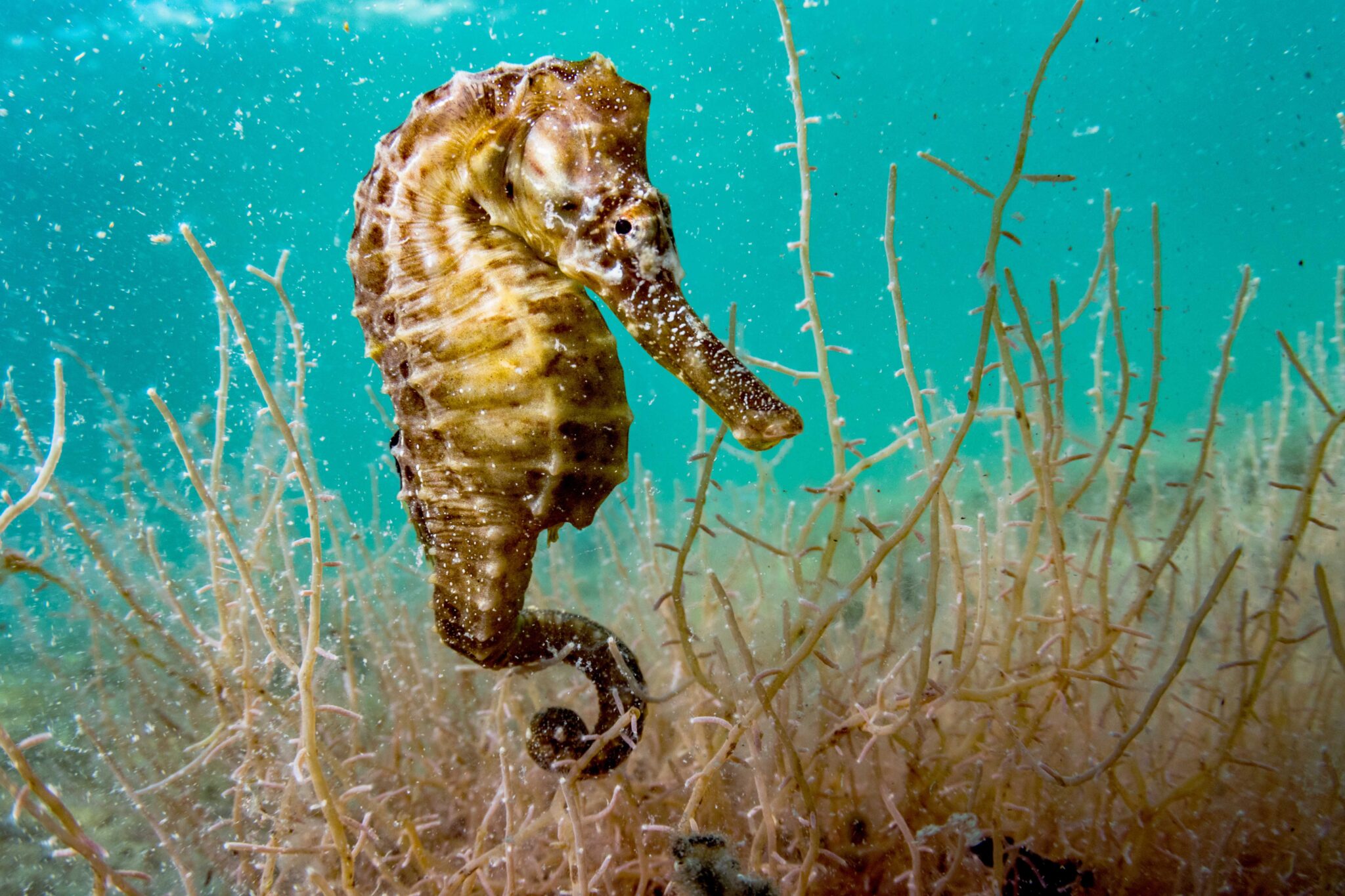
This week has seen the announcement of the designation of Seahorse National Park at Hatchet Bay Cave and Sweetings Pond on Eleuthera. This monumental announcement comes after years of efforts from the BNT and its partners in advocating for the protection of Sweetings Pond and its surrounding areas as an official national park under the BNT’s management.
Sweetings Pond is a large, land-locked saltwater pond in Hatchet Bay, Eleuthera. It has many unique natural features, but the most notable of them all is its incredible seahorse population, which is believed to be the densest population of seahorses in the world. The new 548-acre national park protects the entire one-mile-long pond and the surrounding terrestrial area. The land surrounding Sweetings Pond is a blend of intact coppice, mangroves, and farmlands. In addition, the new national park includes the extensive Hatchet Bay Caves system. This historic cave system is a popular attraction and contains a number of impressive geological features. It is one of the longest dry cave systems in The Bahamas.
Since 2014, the BNT has been leading efforts to have the area declared as a national park. This included years of public outreach and stakeholder consultations in communities across Eleuthera; education presentations in local schools; science and research efforts; and engaging consecutive government administrations. In 2018, the BNT submitted the “20 by 20 Marine Protection Plan” to the government, which included the recommendation to declare Sweetings Pond and other areas in The Bahamas as protected areas.
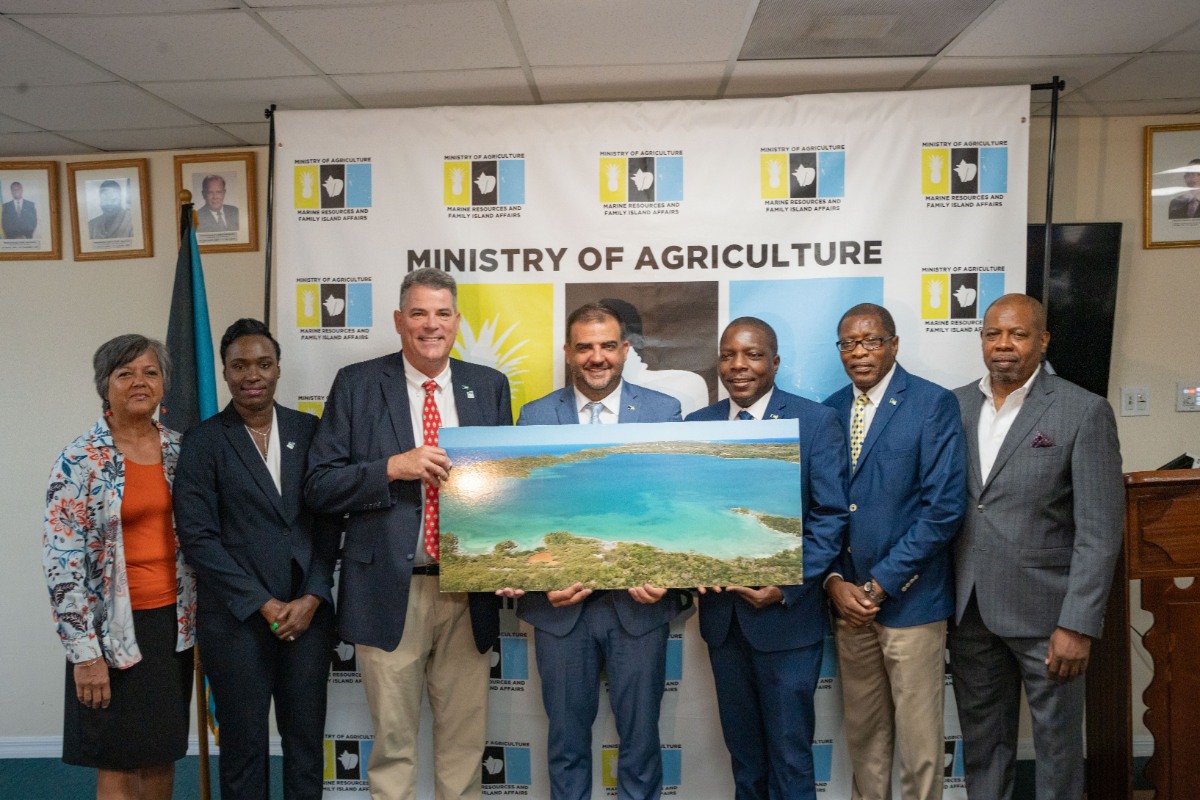
During the lease signing ceremony for Seahorse National Park, Minister Clay Sweeting, said, “This lease agreement for Sweetings Pond has been a long time coming. It represents a milestone in our journey towards sustainable development. It symbolises our collective responsibility to safeguard our natural heritage and create a harmonious relationship between economic progress and environmental preservation.
“I would like to express my gratitude to all stakeholders in this process of drafting and finalising this lease agreement. Their dedication, expertise, and commitment has been crucial in ensuring that this agreement falls in line with our vision of creating a thriving ecosystem while promoting responsible usage. Let us continue to preserve the jewel that is Sweetings Pond for many generations to come.”
The BNT invites the public to stay tuned for more news about its plan for the country’s newest national park: Seahorse National Park at Hatchet Bay Cave and Sweetings Pond!
To learn more about the role the BNT plays in managing terrestrial and marine national parks, conserving wildlife, and informing environmental policy, please visit its website: www.bnt.bs
Follow/subscribe to its various social media channels: Facebook, Instagram, Twitter, and YouTube.
Banner Image: A lined seahorse (Hippocampus erectus), female, clining to algae in an alkaline pond in The Bahamas by Shane Gross
News
PADI Club invites Ocean Lovers on exclusive dive trip to Bonaire this September
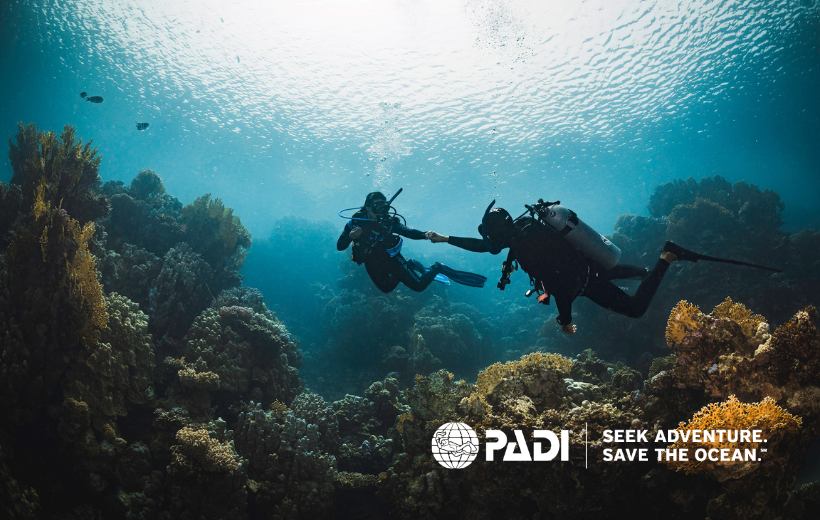
Following the popularity of the PADI Club trip to Belize at the end of July, a second “dive trip of a lifetime” has just been announced by PADI Club to Bonaire this September 23-30, 2023.
Offered exclusively for PADI Club members as part of their yearly benefits, attendees will get to seek adventure while staying at the all-inclusive Buddy Dive Resort, one of PADI’s premier members on the island. Other PADI Members in Bonaire – including Toucan Divers, Divi Flamingo, Wanna Dive, Dive Friends and Scuba Do – will also be hosting various dive experiences throughout the week.
“Bonaire is a unique and beautiful gem in the Dutch Caribbean and we want to show our Club Members this little island looms large as a dive destination,” says Zach Pavkov, PADI Club Operations Manager. “This trip offers participants a chance to not only explore a world-class diving destination but do so through some of the very best PADI Operators.”
PADI Club members will receive a generous discount for this seven-day diving adventure, with packages starting at $1,739 per diver for double occupancy.
Included in the package are:
- social events that include hosted dinners, cocktail parties and live music
- transportation in Buddy Dive Resort’s famous pick-up truck
- daily shore diving and boat diving
- accommodation, with the option to share a room with another solo diver or rent out one, two and three-bedroom apartments to host larger groups of divers
- surface interval activities that include PADI Seminars and island excursions like hiking and bird-watching.
“Because the water surrounding Bonaire has been an established marine park for 44 years, Bonaire is now a top-ranked destination with abundant marine life that includes scorpionfish, flounder and frogfish, moray eels, hawksbill turtles and eagle rays, ” continues Pavkov.
With limited spots available, the list of participants will be decided on a first-come, first-served basis. Those who are not yet PADI Club Members but are interested in joining the trip can sign-up, which will also give them access to:
- 20% of PADI eLearning® programs and PADI Gear™
- a free ReActivate® online refresher
- a free DAN® Prepared Diver course
- a subscription to Scuba Diving® magazine
- access to the PADI Club Celebrity Speaker Series webinars
- brand partner benefits from GoPro, Uber, Salt Life and more
To further support ocean lovers to create positive ocean change, five percent of the PADI Club membership fee will go towards supporting conservation efforts around the globe.
“PADI Club benefits are designed not just to empower divers to explore the ocean, but also enable them to play a pivotal role in saving the ocean too,” says Pavkov. “This year’s additional expedition to Bonaire gives our community the chance to come together and explore our shared blue planet in a truly meaningful and connected way.”
Click here to sign up for PADI Club and reserve your spot here to join the Bonaire dive trip.








